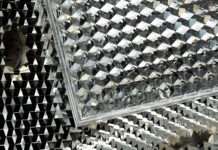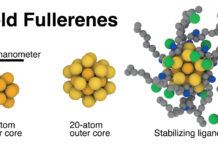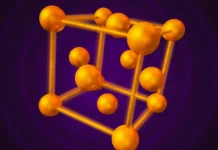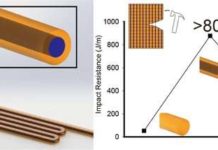Making new layered superconductors
Researchers from Tokyo Metropolitan University have created new superconductors made of layers of bismuth sulfide (BiS2) and a high-entropy rare earth alloy oxyfluoride, containing...
Polypropylene robots utilize humidity gradient to generate signals
A team of researchers at the U.S. Air Force Research Laboratory, Wright-Patterson Air Force Base, has developed a type of soft robot that can...
Ultra thin magnetic device leads to new memory technologies
Magnetic materials are the backbone of modern digital information technologies, such as hard-disk storage. A University of Washington-led team has now taken this one...
Elastic biodegradable hydrogel for bioprinting of new tissues
Researchers at The University of Texas at Arlington have developed a highly elastic biodegradable hydrogel for bio-printing of materials that mimic natural human soft...
Promising new material has the right properties
Solar energy is clean and abundant. But when the sun isn't shining, you must store the energy in batteries or through a process called...
HDPE Marine Board | Interstate Plastics
Marine Board - Withstands the harshest marine conditions.
Manufactured for marine use, Interstate Plastics Marine Board HDPE (High-Density Polyethylene) is a superior alternative to wood at a...
Nano-Patched Graphene for Soft Electronics
Perfect graphene is an ideal two-dimensional (2D) network of sp2–hybridized carbon atoms and is known as the strongest material in nature. However, the practical...
PTFE seal could make insulin pumps better
When O-rings and other traditional sealing methods fail, diagnostic and drug-delivery equipment engineers are embracing a new and more cost-effective way to improve the...
This not-so-little polypropylene jar went to market
Leading Dutch pickled vegetable processor Van der Kroon Food Products B.V. (VDK) has become the first company to market with the recently launched 500-ml multilayer...
Improving 3-D printing of plastic parts
Robots that can build homes, marathoners' running shoes and NASA's upcoming spacecraft all have one thing in common: 3-D printed parts. But as enthusiasm...
























